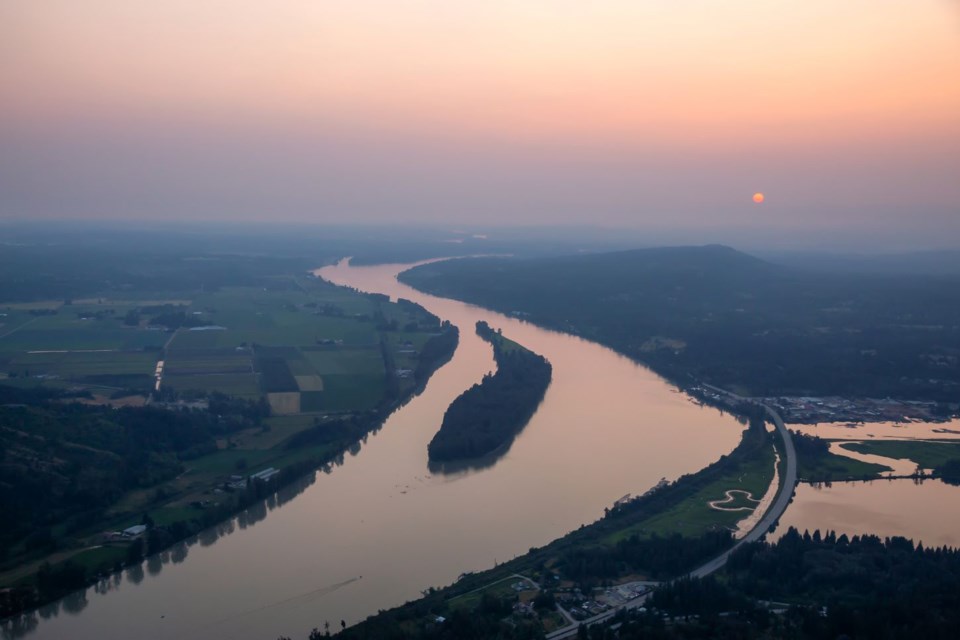Environment Canada has issued two alerts for the Tri-Cities as smoke from wildfires south of the border and temperatures climb across the Lower Mainland due to a ridge of high pressure.
Daily maximum temperatures are between 5 and 10 degrees Celsius above normal, and on Thursday residents of Coquitlam can expect it to feel like 33 C outside as an upper ridge of high pressure draws warm air northward from the U.S.
Temperatures are expected to peak today and into Friday as they climb 5 C above average overnight and up to 10 C during the day.
At the same time, high concentrations of particulate matter stemming from wildfires in Washington and Oregon are predicted to hit Metro Vancouver in waves into Friday, and both the regional body and Environment Canada recommend scheduling indoor activities.
“Persons with chronic underlying medical conditions or acute infections such as COVID-19 should postpone or reduce outdoor physical activity until the advisory is lifted, especially if breathing feels uncomfortable,” wrote Environment Canada in its special air quality statement.
Health effects from wildfire smoke can range from a sore throat, itchy eyes and a runny nose to a mild cough, wheezy breathing and even headaches, notes the BCCDC.
Wildfire smoke is a complex mixture of gases and particles, with fine particulate matter larger than 2.5 micrometers passing the greatest health risk to humans, particularly those with chronic conditions, like asthma, heart disease, diabetes or chronic obstructive pulmonary disease, known as COPD.
Pregnant women, infants and young children, as well as the elderly are also at a higher risk of experiencing health problems from wildfire smoke.
“Some people may experience more severe symptoms and should seek prompt medical attention,” said the organization, adding you should call 811 or speak to a doctor if you experience shortness of breath, a severe cough, dizziness, chest pain or heart palpitations.
Short of those severe symptoms, there are several things you can do to protect yourself from wildfire smoke. Indoors, a portable HEPA air cleaner can filter out the contaminated air in a section of your house, offering a safe haven for you or your family.
If you don’t have access to your own HEPA filter, you might consider visiting a shopping mall or one of the community centres and libraries recently reopened across the Tri-Cities.
No matter where you are, it’s important to avoid strenuous activities on smokey days, advises the BCCDC through its website.
For those forced to work outdoors, using an N95 mask — though not always an easy thing to find these days — is recommended.



